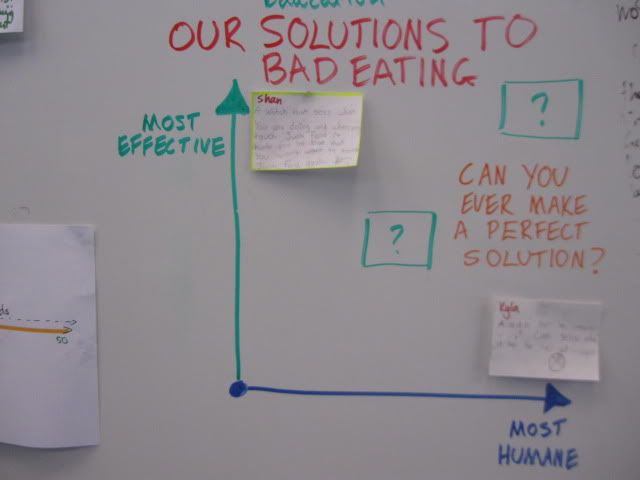Inspired by John (FarmGeek) Hart 's session at this years Kiwi Foo Camp, I decided that problem of poor eating habits might be creatively approached by a fantastic class of year 5 and 6 thinkers.
I told them about John's session on food labels and improving our eating before turning the problem over to them, to solve and illustrate on an A5 card.Minutes later we had a class set of a broad range of solutions to analyse.
How could we organise them so that we can make informed decisions on selecting the ones we like?
By creating pairs of opposites, the kids created several different spectrums to organise and compare their solutions.
cheap - expensive
realistic - futuristic
simple - complex
cheap - expensive
forced - free will
effective - ineffective
humane - inhumane
all of these were child generated, though I'd have added humane if it hadn't come up.
They were powerful lenses through which to view the qualities of each solution.
Human continuum: Handing out the cards after a shuffle put each student with someone else's solution to interpret and justify as they spread out across the room for each continuum, reasoning and discussing as they went.
Which were the values we held most important?
We decided on humane and effective.
Then we mapped them together on a single chart using two axis.

Some clear patterns emerged. Our solutions were either very humane, OR very effective.
How could we get it perfect?
What solution, imaginary or otherwise would take the top right spot in the graph?
We reviewed our ideas again using problem analysis to see just what problem we were each solving with our ideas. That will be in the next post.



